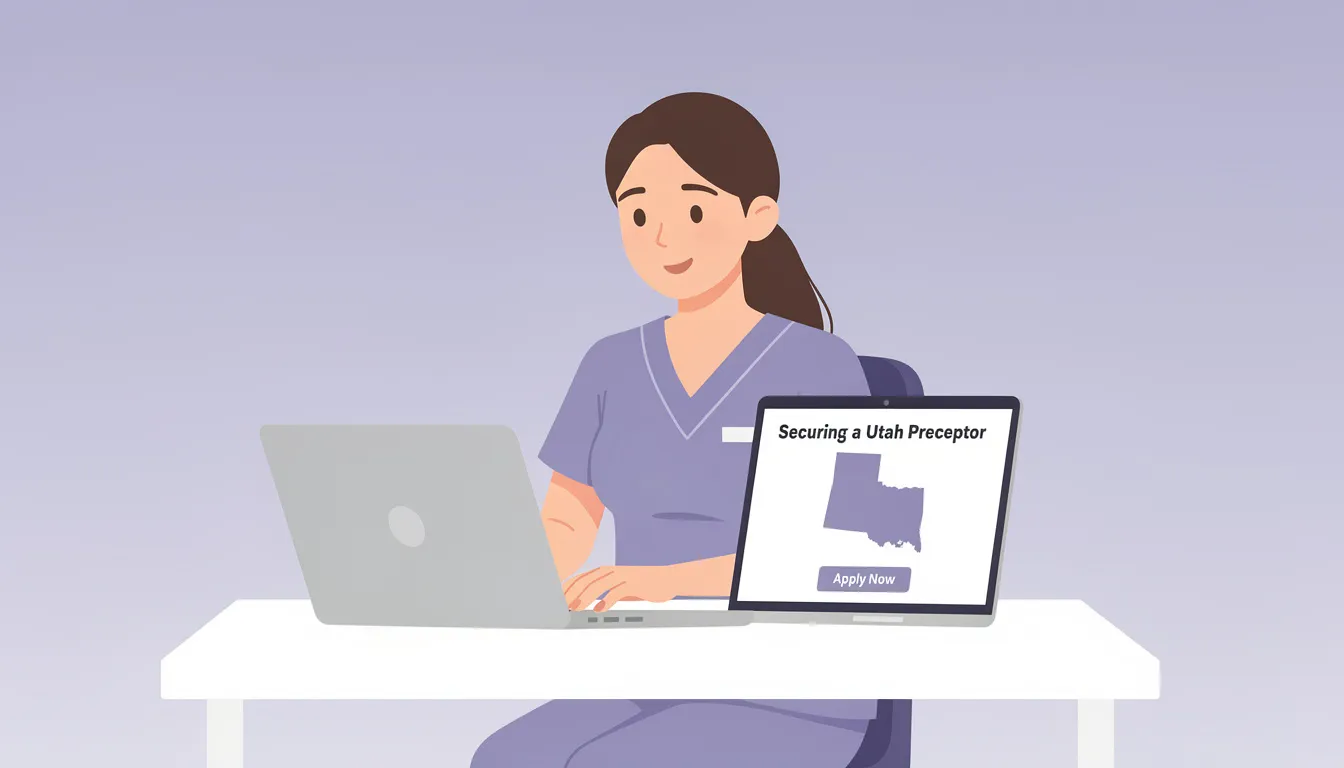What makes an effective NP preceptor in clinical practice? The answer encompasses many aspects. Articles about precepting often discuss setting goals for students, managing timetables, and staying organized. While these are important, there's more to explore.
In this article, we'll address key concepts that many preceptors, especially those new to the role, might overlook. These fundamental principles include: defining your role as a preceptor, developing essential soft skills, understanding how to teach adult learners, and identifying stages of competence in nursing education.
If you're an experienced and effective NP preceptor familiar with these topics, please skip ahead. However, if you continue reading, you may discover valuable insights to enhance your precepting skills and improve patient care outcomes.
Becoming a preceptor is a significant responsibility, yet formal training for this role is often lacking in many nursing programs and healthcare organizations. It's surprising how little guidance is provided on how to effectively precept medical students and nurse practitioners.
Let's explore some crucial aspects that can help you define precepting and excel in this important role:
Defining Precepting: The Multifaceted Role of an Effective NP Preceptor
To truly understand precepting, we must first define what an NP preceptor is and their essential role in clinical practice. While many associate precepting with teaching practical skills and sharing clinical knowledge that students will apply in their future roles as nurse practitioners, the reality is far more comprehensive.
In nursing education, we distinguish between a teacher and an educator. A teacher might focus solely on imparting knowledge, but an educator goes beyond addressing the holistic needs of their students as developing healthcare professionals.
An effective NP preceptor is, fundamentally, an educator. Let's explore why this distinction matters in the context of clinical placements and patient care.
NP preceptors can have many faces. As you might remember from school and your own experience as a preceptee, sometimes a preceptor works as a:
- Mentor: A person who gives advice which, in this case, might be personal and non-clinical. Advice for you to grow as a person.
- Socializer: A person who helps you to get acquainted with a particular group of people, in this case, the professional nursing community.
- Role Model: A person who exhibits personality traits and professional habits that you would like to achieve for yourself.
- Colleague: A person who works alongside you at the same level and helps you get through the day. They teach you, and you teach them.
These four elements form the pillars of effective precepting, each playing a crucial role in shaping future nurse practitioners and improving health outcomes.
While embodying all these roles consistently may seem overwhelming, the key lies in understanding when and how to apply each aspect. Effective precepting involves more than just imparting hard clinical skills; it's about nurturing well-rounded healthcare professionals who can thrive in various clinical settings and contribute positively to patient care.

What are “soft” and “hard” clinical skills?
In the world of education, careers, business, precepting, you name it, there are two kinds of skills that you can teach a person. Let's break it down:
Hard skill are the measurable, practical skills that have to do with completing a certain task efficiently.
In the nursing environment, an example of a hard skill would be "how to place an IV correctly." Pretty straightforward, right?
Soft skills, in contrast, are those skills related to personality and behavior. They're the things that help you do your job better, especially when you're dealing with people constantly.
In the nursing environment, a soft skill would be your bedside manner—that special touch that makes patients feel comfortable and cared for.
An effective NP preceptor will want their students to learn both hard and soft skills during and even after their clinical rotation. It's all part of the package.
This distinction is super important because, let's face it, many preceptors might have a tendency to leave soft skills behind. Or they might not even know how to teach them. But here's the thing - both are crucial in defining what precepting means.
Remember, precepting isn't just about teaching students how to perform procedures. It's about shaping well-rounded nurse practitioners who can handle both the technical and human aspects of patient care. That's what makes the difference between a good NP and a great one.
So, as you guide your students through their clinical practice, keep both these skill sets in mind. Your future self (and your students' future patients) will thank you for it!
The importance of soft skills when teaching NP students
You might have heard somewhere that “you can't teach people to be compassionate.” If they are insensitive, that's their problem.
However, we all have problems, and we don't wake up every day feeling peachy and ready to deal with patients.
Everyone can learn strategies, phrases, and body language to appear friendly and compassionate while in the presence of a patient.
And even if this means they're "faking it" sometimes, well, does it really matter if the patient ends up receiving excellent care? We've all done it before. That's a clinical soft skill, folks, and it's a big part of defining precepting.
Compassion, agreeableness, relationship skills, and good communication can all be taught to NP students during their clinical placements. It's not just about the hard skills of patient care or medical procedures; it's about shaping well-rounded healthcare professionals.
Now, you might be thinking, "Hold up! My preceptor never said anything about that, and I turned out to be a great Nurse Practitioner! They were effective!"
Here's the deal: there's a good chance they did teach you these skills, just by being a great mentor. They might not have used the fancy phrase "soft skills," but they were showing you the ropes of effective patient interaction all the same.
Now that you've got a name for these skills, you can pass that knowledge on to your own students. They'll understand what this means, and you'll be a more effective preceptor for it. It's all part of the cycle of nursing education - learn, practice, teach, repeat.
Remember, as a preceptor, you're not just teaching clinical skills. You're helping shape the next generation of nurses and nurse practitioners who'll be out there making a real difference in patient outcomes. So don't shy away from those soft skills - they're just as important as knowing how to place an IV or interpret lab results.
How to treat NP students (as an effective NP preceptor)
Alright, let's talk about the dos and don'ts of precepting. The number one worst thing you can do as an NP preceptor is:
Focusing on hard skills alone and not taking on any of the other roles we mentioned earlier (like being just a teacher instead of a full-on educator).
The second worst thing? Treating your students like children. Trust me, it happens more often than you'd think.
So, how does an adult (we're talking college-educated, soon-to-be nurse practitioners here) actually learn stuff?
Well, to really nail this whole precepting gig and help students acquire knowledge, we could say an adult needs:
- Autonomy: Adults are usually self-directed. Get them involved in the learning process by going over the proposed goals together. It's their clinical placement, after all!
- Clear goals: Obvious, right? But make sure these goals are relevant. Never, and I mean never, tell them to do something "because you say so." That's not how we define precepting in the 21st century, folks.
- Recognition: These students have life experience, often as registered nurses. It's crucial to recognize this. Challenge them, sure, but don't dismiss their insights.
- Practicality: This works great for both hard and soft skills in patient care. Start with clear steps and strategies they can test-drive. Save the deep mentoring discussions for later.
Now, practicality can get tricky if they don't immediately agree with what you're telling them. That's where those clear goals and giving them recognition and autonomy come in handy.
If this is the case, ask them: What would you do? Reassure them that their insight is important but that the goals you set together are not just your goals but the goals of the clinical institution.
Is it possible to find a student who flat-out refuses to do what you tell them? It's rare, but it can happen. To avoid wasting time, let them know you can discuss it later. Keep those doors open for communication – that's part of being a good role model and mentor.
Remember, effective precepting isn't just about teaching clinical skills or procedures. It's about guiding these future nurse practitioners to become well-rounded healthcare professionals who can tackle any challenge in patient care. So, define your precepting style with these principles in mind, and you'll set your students up for success!
The Art of Giving Effective Feedback in Clinical Practice
Effective feedback is one of the most important, and often overlooked, parts of precepting in clinical practice.
Whether you're a new preceptor, a former preceptor returning to mentoring, or an instructor working within a university or health organization, mastering the art of giving feedback can dramatically improve both student learning and patient care outcomes.
In clinical placements, students rely heavily on clear, constructive feedback to grow their skills and knowledge. Yet many preceptors struggle to find the right balance between supervision, encouragement, and correction. Here's how to approach feedback effectively:
1. Be Timely and Specific
Feedback should happen as close to the clinical event as possible. For example, if a medical student or nursing student successfully performs a new procedure, take a moment to highlight exactly what they did well — and where they could improve. Immediate feedback helps reinforce good conduct and corrects issues before they become habits.
Example:
"During that IV placement, you maintained excellent sterile technique, but remember to double-check the patient's ID before you start. That small step protects patient safety and aligns with our organization’s procedure criteria."
2. Focus on Behavior, Not Personality
Effective precepting means keeping feedback objective and centered on actions — not the student's character. Frame critiques around specific clinical skills, knowledge gaps, or practice improvements.
Avoid:
"You're careless with patient documentation."
Instead say:
"Let's review the correct way to complete charting so we maintain accurate patient records."
This distinction models professional conduct for future nurses, nurse practitioners, pharmacists, and physicians they'll work alongside.
3. Balance Positive Reinforcement with Constructive Criticism
While it's important to correct mistakes, it's equally critical to recognize what students are doing right. An effective NP preceptor describes strengths and opportunities for improvement equally — a principle that keeps students motivated without losing sight of high standards.
For example:
"Your patient interview was thorough and empathetic. Next time, let's add a few more questions about medication adherence to strengthen your treatment planning."
4. Encourage Self-Reflection
Ask students to evaluate their own performance first. This builds critical thinking skills, fosters autonomy, and promotes the self-awareness necessary for mastering patient care.
Question to ask:
"How did you feel about that patient encounter? What went well? What would you like to improve?"
Adult learners, including future nurse practitioners and pharmacy professionals, often respond better to a coaching approach than to top-down lecturing.
Effective feedback is a cornerstone of successful precepting. It strengthens clinical training, enhances health outcomes, and ensures students are prepared for real-world practice after they leave their nursing, pharmacy, or medical programs.
By providing timely, specific, and supportive feedback, you’re not just teaching clinical skills — you're modeling the communication and professional behaviors that define great healthcare providers.
Helping NP students achieve competence during their clinical placements
The goals NP students complete will not necessarily correspond to their competence as professionals.
Effective NP preceptors can help them by actually recognizing the stage of competence that they are currently inhabiting, and shifting those goals accordingly. Every student is different.
You might say, “hey, my preceptor made us do everything, nobody got special treatment, it was do or die, and I turned out fine.”
That's not the worst scenario, but definitely not a good one. However, remember that these are just suggestions for effectiveness. Apply them according to your circumstances.
There are four stages of competence (explained here from the NP student's perspective):
Unconscious Incompetence: The stage of shock you get from the school to real life transition and realizing that you don't know anything about anything. You graduated, yes, but what is an IV again?
Conscious Incompetence: You know what an IV is, you just don't know how to actually place it. You need to learn what you know you don't know, and you realize it might not be as easy as you initially thought.
Conscious Competence: You've placed about five IVs today, step by step, always repeating the steps to yourself. You might be able to teach somebody else how to do it. It's clean, it's professional, and your preceptor is proud of you.
Unconscious Competence: You've placed so many IVs in your life you could do it with your eyes closed. You don't even remember the steps at this point, the needle just goes in and you're done. It's great, but you might want to get back to basics, keep the knowledge fresh in case you have to explain it to someone else. Is the process still professional? Is it still clean? Keep those questions in mind.
Why should an NP preceptor pay attention to this?
To finish up, for now, let's keep in mind that there are lots of other educational concepts that we might explore later in other blog posts. This is only a small sample of the things that you have to consider and implement in order to be more effective in your role as a preceptor.
If you want to be a great preceptor, you should pay attention because there are almost no courses that you can take to actually prepare yourself as an educator.
People expect you to do this job solely based on your own experience as a professional. Just think about it. Is that ideal?
We could say that, ironically, you're expected to be a mentor, socializer, role model, etc, from a place of Conscious Incompetence. Isn't that funny?
If it's not good for the students… It might not be good for you. Just saying.
Keep an eye on future blog posts, and thank you for reading thus far (and for choosing to precept).

Follow us on social media and feel free to contact us for any questions and requests:
Facebook: https://www.facebook.com/NPHubOfficial/
Instagram: https://www.instagram.com/nphub_
Find a preceptor who cares with NPHub
Book a rotation.webp)








.webp)


.webp)



%20(3)%20(2).svg)
.webp)